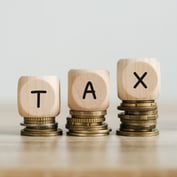The Netherlands, the sixth largest economy in the euro zone, has had its share of woes thanks to the financial crisis, although it’s by no means been as poorly off as some of its euro zone neighbors.
Still, it’s had its problems. The global crisis affected the Dutch economy in a number of ways, one of which was its large dependence on the export of goods and services—which made up 80% of its GDP, nearly twice the average in Europe, at the time. The slowing global economy meant that its exports took a hit, driving up unemployment—which is still high, though not as bad as in, say, Spain.
But if exports suffered, Dutch banks suffered far more. With a financial industry that even now is four times the size of its economy, the Netherlands took a big hit to its banks because of its huge foreign exposure—including to the U.S. and its toxic mortgages—at more than 300% of the country’s GDP.
Three of the four largest Dutch banks had to be bailed out, and mortgage loans continue to haunt the Netherlands after the collapse of its own real estate bubble. In addition, the financial crisis wasn’t the only thing to drive down the banks, which are now dealing with a new batch of problems.
Last October, Rabobank, the country’s second largest, was fined $989 million by global regulators for the manipulation of interest rates. And last month two senior foreign exchange traders left Rabobank after being suspended. International regulators are investigating the possibility that traders may have colluded on foreign exchange benchmark manipulation.
However, that’s not to say that the Netherlands has had it all bad since the crisis. It’s had to up its spending on social benefits such as unemployment and pensions, thanks to its strong support system, but it still runs a trade surplus—something many countries would love to do. Thanks to that support system, too, its people are not in as dire straits as in many other countries where public benefits have collapsed. In addition, the Netherlands has a strong manufacturing and service economy.
And in last month’s stress tests, Dutch banks did well despite their earlier bailouts. ING, which had to be bailed out thanks to overexposure to U.S. mortgages during the financial crisis, has so far recovered that it is considering resumption of dividend payments next year. And ABN AMRO did so well that an IPO is being considered for 2015 to return the bank to the hands of private investors.
But with the focus of the world on taxes and the corporations that pay them (or not), lately the Netherlands has been making headlines for another reason: as a tax haven. The European Union is not happy with tax haven states, and has only just wrung a concession from Ireland to phase out its “Double Irish” tax shelter for foreign corporations.








 November 19, 2014 at 08:20 PM
November 19, 2014 at 08:20 PM











